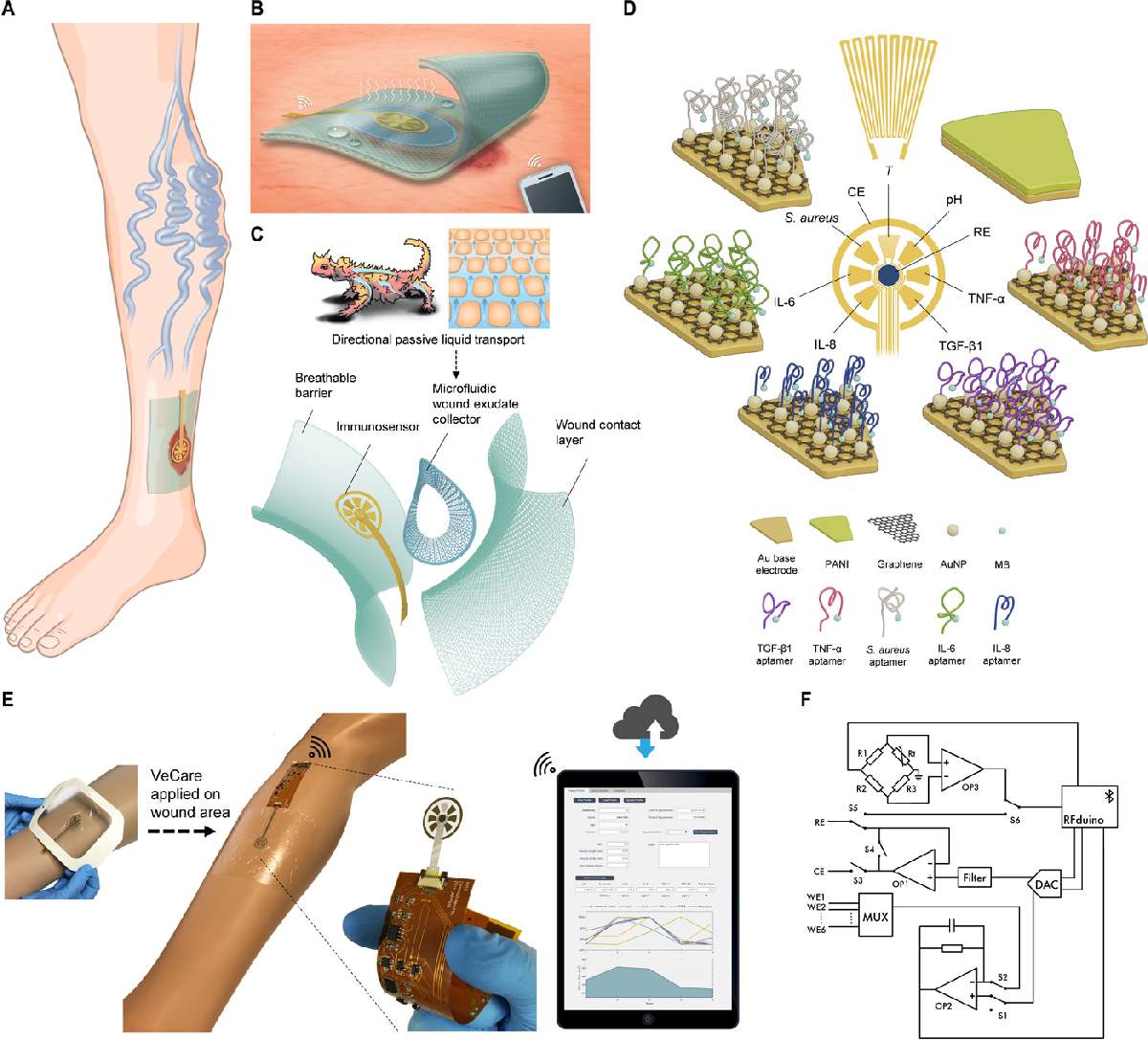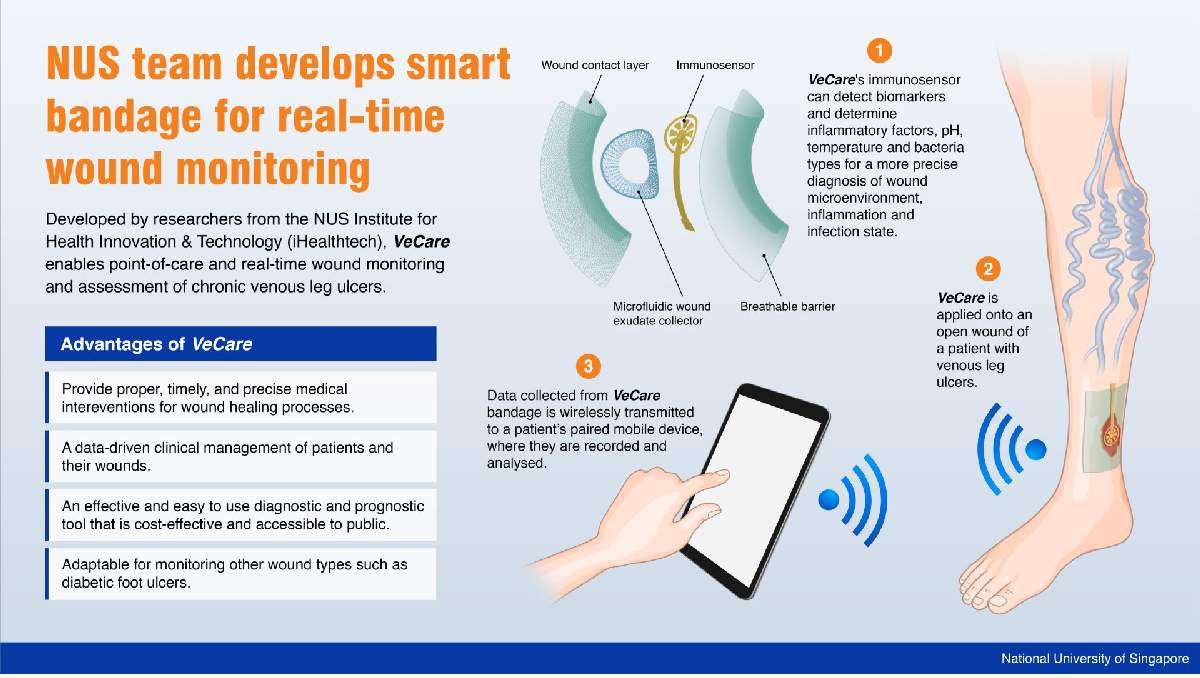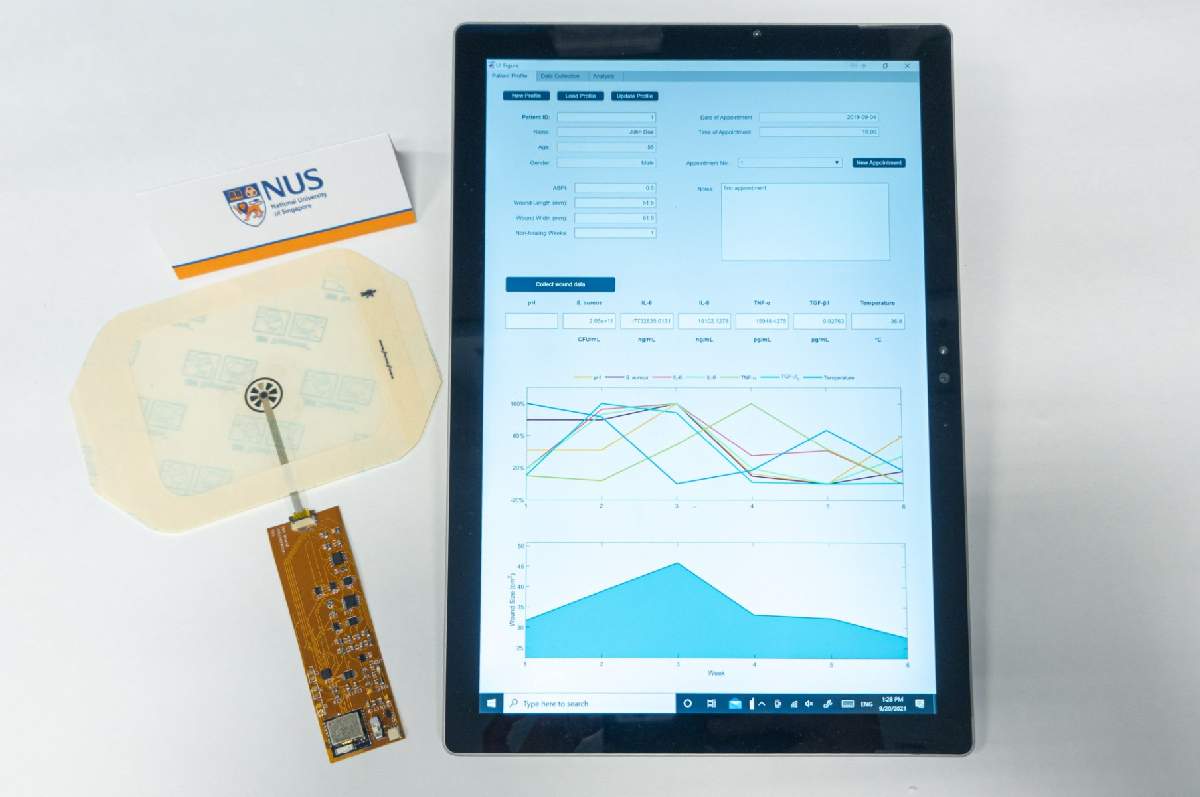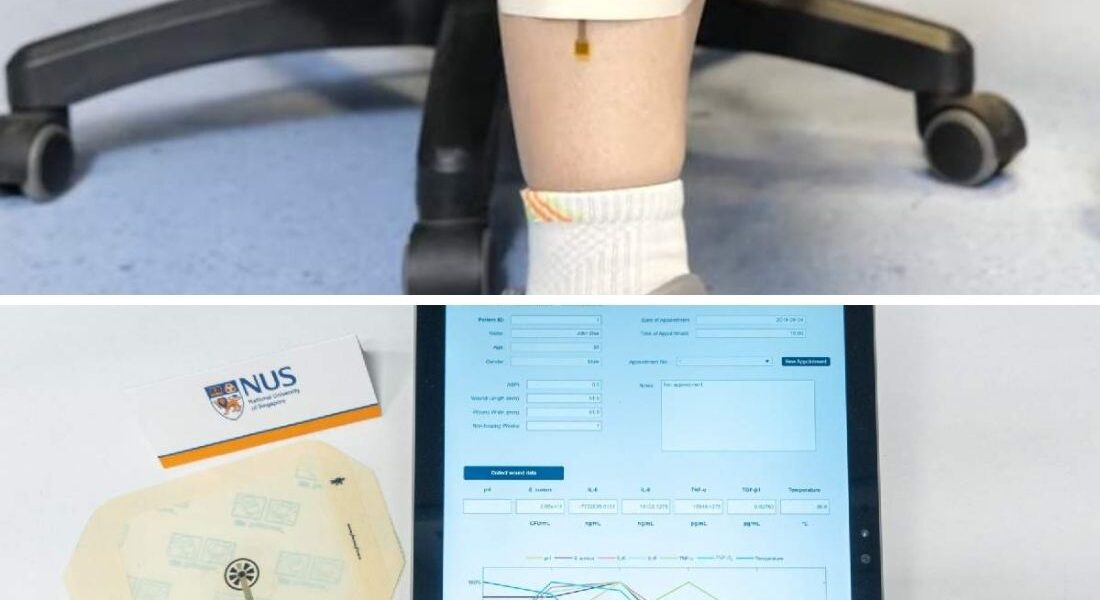A research team from the National University of Singapore (NUS) has created a smart wearable sensor in the form of a smart bandage. This smart bandage with the sensor can conduct real-time wound monitoring. It manages wirelessly through a companion app.
How smart bandage helps doctors & patients?
VeCare is an online point-of-care system for chronic wound assessment. This smart wearable consists of a wound-sensing bandage, a mobile app, and an electronic chip. It comprises a wound contact layer, a microfluidic wound fluid collector, a breathable outer barrier, and a flexible immunosensor.

Along with the VeCare technology, it enables physicians to easily detect temperature, bacteria type, pH, and inflammatory factors related to chronic wounds in only 15 minutes. Hence, it enables fast and accurate point-of-care, wound assessment.
The chip component of the bandage is powered by a rechargeable battery that’s reusable for later applications.
Wearable sensor enables remote monitoring of chronic wounds
The companion mobile app along with the VeCare platform enables doctors to monitor the healing condition of patients’ chronic wounds wirelessly. It further reduces the problem for patients traveling to a clinic. It further complements the patient’s current medical treatment.
Together with the help of the Singapore General Hospital, NUS researchers also conducted a clinical test of VeCare smart bandage on patients suffering from chronic venous leg ulcers. They have successfully demonstrated that this bandage with integrated wearable sensor thoroughly assesses and monitors the progress of wound healing along with on-time medical intervention.

The VeCare smart bandage system is also customizable and scalable. It helps in accommodating various biomarkers for monitoring different types of chronic wounds. This technology aims to easily use prognostic and diagnostic tools for precise data-driven clinical management of patients.
Why is it important for diagnosis and prognosis?
According to NUS, around 2-percent of the world’s population faces non-healing wounds, like chronic venous leg ulcers and diabetic foot. With proper timely care and treatment of chronic wounds, there will be faster and speedy wound recovery.

Currently, such clinical assessments of the world depend on visual inspection or collection of fluid. It helps in analyzing and detecting certain biomarkers to provide timely treatment for wound healing. While there are various flexible sensors available for wound care, these can probe only a specific set of markers, like temperature and acidity.
However, the research team still needs to seek regulatory and safety permissions to prepare people for its mass production. They also need to explore the addition of various appropriate biomarkers for other types of wounds. It will also help them to utilize data in current clinical workflows to enhance diagnosis and medical treatment.
Future of smart bandages
Point-of-care bandages coupled up with digital health or telehealth capabilities can play a major role in transforming the society and healthcare technology.
Such innovation will offer patients complete freedom for performing the test while monitoring their wound conditions at home. This is beneficial in teams of wound healing and management on time.






